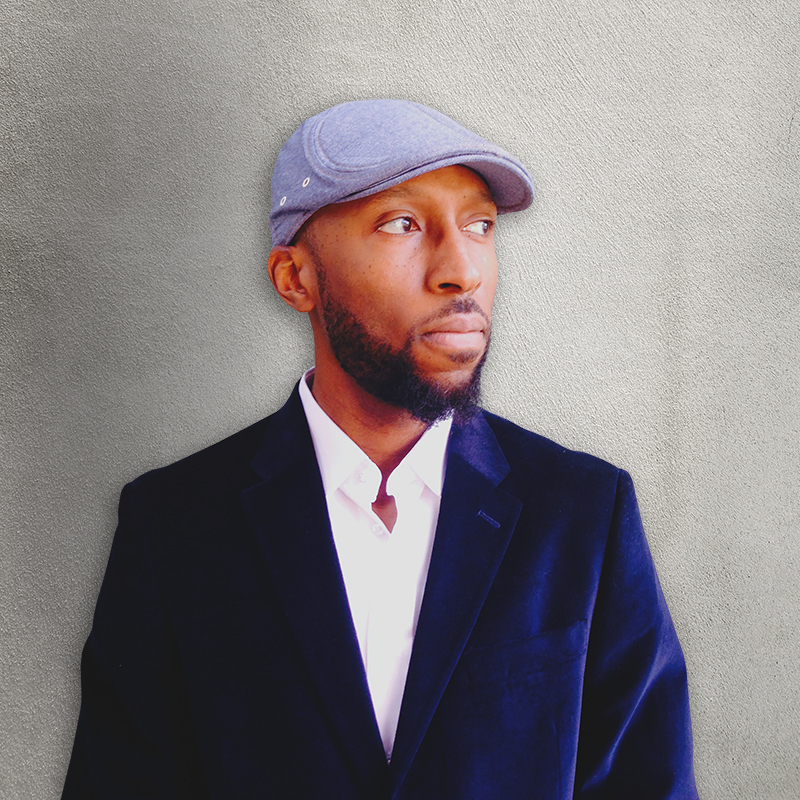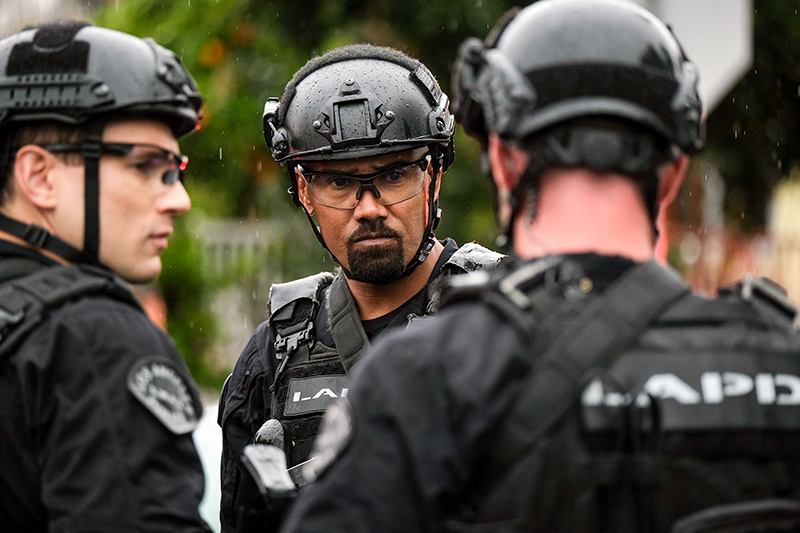
For other 5th graders at Pleasant Green Community School, off 5th Street and Washington Boulevard in Kansas City, Kansas, it was a throwaway extra-credit assignment: Write your own Greek myth. For Aaron Rahsaan Thomas, it was a springboard to an award-winning career as a Hollywood screenwriter.
Thomas, 43, spent his early childhood in the Chelsea Plaza affordable housing complex and attended the same Baptist church as Janelle Monáe, whom Thomas’s mom used to babysit. Later, Thomas’s parents bought a house near 18th Street in the historic Westheight neighborhood, famous for its Craftsman-style homes. They still live there.
Thomas attended Pembroke Hill High School in Kansas City, Morehouse College in Atlanta, and the University of Kansas before moving to Los Angeles, where he earned a master’s degree at the University of Southern California School of Cinematic Arts.
Thomas was selected for the prestigious CBS Writers Mentoring Program. His professional writing credits include Soul Food: The Series, Friday Night Lights, which earned him a Peabody Award, Numb3rs, and CSI:NY. He co-produced TNT’s SouthLAnd, Fox’s Sleepy Hollow, and Netflix’s The Get Down.
Thomas has written the screenplays for two feature films: Cover and Assassination Games and directed an ESPN 30 for 30 film about the USC football team, Trojan War. He is currently co-creator and executive producer of CBS’s S.W.A.T.
IN Kansas City caught up with Aaron by phone in Los Angeles, where he lives with his wife and 4-year-old daughter. He also has two grown daughters.
What are some of your favorite memories of growing up in Kansas City?
Kansas City was a great place to grow up, great people. We were a big movie and television family, so a lot of my memories stem from entertainment. We used to go to the State Drive-In on State Avenue regularly. And the theater at Indian Springs Mall when Indian Springs existed—a lot of fond memories seeing movies there, and going to the Tivoli in Westport to see movies.
I also have great sports memories from Kansas City. I remember very vividly when the Royals played the Cardinals in the 1985 World Series. We didn’t have tickets, but I remember driving past Royals Stadium all lit up at night and feeling the energy. You could hear the crowd roaring from far away.
I also remember meeting some of the players on KU’s basketball team when Larry Brown was coaching. As a kid I remember mainly that they seemed just impossibly tall.
And the Chiefs! We couldn’t afford regular season tickets, but I remember going to preseason games and rooting for the Chiefs from the nosebleed section.
I would like to hear the rough story of the “Greek” myth you invented in the 5th grade.
There was a farmer named Eclipso [laughs], and one time, to help farmers get relief from a really, really hot sun, he was given wings by the gods. He used those wings to fly up to the moon and push the moon in front of the sun, to give the farmers relief for one day, and that’s how the eclipse got its name. I thought it was extraordinarily fun, coming up with a story, and I guess I’ve never stopped.
“My dad always raised me with a grounded idea of keeping priorities straight. He always says, “God, education, family.” So those are my priorities.”
What role do family and friends play in your life today?
They are life. My wife, my daughters, my parents, my little sisters, even my brothers-in-law, and definitely my friends from childhood and high school in Kansas City and from college and from graduate school—they all help to remind me of what life is about.
My dad always raised me with a grounded idea of keeping priorities straight. He always says, “God, education, family.” So those are my priorities.
I also try to remember that every day is not a given. You never know what’s coming at you. So, I try to never take anything for granted. I try to treat every project, every opportunity, every interaction as special.
You’re very busy with your career. What does down time look like?
[Long pause.] Ah, well, it’s funny because my wife was just reminding me the other day that it’s been a while since there’s been any.
My outlook about not taking any opportunity for granted can result in not much down time. When I do get some, it tends to be spending time with family and friends, traveling to see family in Kansas City and also family overseas.
What would be your dream vacation destination if you weren’t visiting loved ones?
Ooh, so many! My wife and I love to travel, and we love to look for new places. We’ve been to every continent, but neither of us has ever been to Australia and New Zealand. We’d love to check that out.
Do you have any passions that are unrelated to your work?
Yes. I’m a sneakerhead. I’m a Jordanhead, specifically. Collecting and taking care of my shoes and wearing them is a source of fun for me. And that’s a passion that goes way back, even before I wanted to make movies, I wanted to become Tinker Hatfield, the legendary sneaker designer.
Have you seen that video of Patrick Mahomes’ shoe room?
Yes. Yes. Yes. I’m already a fan, and that only made me feel more of a kinship. I understand where he’s coming from. I know what he’s talking about. [laughs]
What culture do you consume when you aren’t creating culture?
I’ve become more and more a student of history, absorbing the patterns of human societies and countries. I find myself going down rabbit holes a lot. I guess I’m consuming how cultures developed over centuries. We learn some stuff in school, and it gives a wider perspective to try to discern patterns.
And we’re learning more and more that some key parts of our history were not being taught in school.
Right, right. And you hope that the history hasn’t been lost, that we can use it to get better.
Where do your ideas come from?
My line of work is competitive and challenging. If you want to go into creating stories, it helps if you have a personal connection to them. So, I often start with a personal passion—a world or a genre or a character that I’m particularly interested in.
What’s an example of a passion that made its way into one of your projects?
The current project I’m producing, S.W.A.T., is a reboot of a series from the 1970s and a movie from 2003. I brought to that project an idea for a character that I’ve always had in my mind: an African-American police officer who understood the challenges of the community he comes from and also the challenges of being a police officer. That passion was born in Kansas City, from seeing police officers who understood different sides and different points of view, who tried to act as diplomats in a way between these disparate groups. That always stuck with me.
I took that character and put it into what I learned about the history of S.W.A.T., which was very interesting.

How so?
The original series was created here, in Los Angeles. I learned about some tricky history that the real S.W.A.T. team has had with communities. I felt that if I was going to take this character that I had a passion for and put him in the center of that world, the best way to do it would be to infuse it with real history and context. The whole team of writers was committed from the beginning to trying to add to our current history in a positive way.
Do you feel like you have a role to play in bringing about needed change, or do you see your role as documenting and reflecting society?
I would say both. I mean, the job of storytelling in entertainment is hard enough. It’s really hard just to tell a good story. But, under the best circumstances, if I can nudge the conversation in an interesting and enlightening way even just half a centimeter, then I take great satisfaction out of that. My approach is less proselytizing than bringing out points of view and walks of life that may not be familiar to everyone that encounters the show.
What is it like being Black in Hollywood in 2021?
There’s been progress made in the entertainment industry as far as the number of Black voices being heard behind the camera and in front of the camera, but the percentages are still low enough that all of us, as individuals, feel a responsibility to make our voices heard, to leave the place better than when we found it. And I mean better not just in terms of doing the right thing, but in terms of the craft—the stories are better when you bring in new voices and different takes.
The way I do that is, I try to mentor and make sure to open doors behind me that maybe weren’t opened in front of me when I was coming up.
Covid is acknowledged on the new season of S.W.A.T., we see people wearing masks and so on. Do you think that our world has been permanently changed by the virus, even if we are able to eventually stop the spread?
Yes, but it’s hard to predict which changes will be lasting. The idea of how you can hold a meeting in my industry used to be that you absolutely had to travel across the country. Now we’ve seen that you can absolutely hold a meeting over Zoom.
I think it’s also interesting to think about how some of the things we have lost may lead to gains in terms of new ideas and social opportunities once the virus is stopped.
How so?
If you look back in history at times of great challenges, right after those challenges are overcome you see periods of great social activity. For example, the Spanish Flu of 1918 was followed by the Roaring ’20s. Disco came after the turmoil of the 1960s.
I’m going to be curious to see, after this is all over: Are you going to be more likely to go to your friend’s backyard barbecue that you might have skipped before? Will you be more likely to just drop by his house to say hello? Will you be more eager to get out and spend time with loved ones? Will you not take it so for granted? I’m curious, and I’m hopeful.
Interview condensed and minimally edited for clarity.


